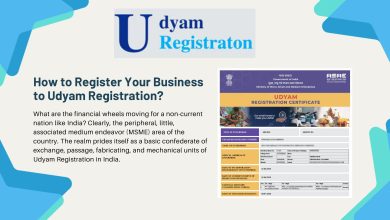Does Inflation Affect FD Interest Rates

Fixed deposits (FDs) are a safe investment option that ensures capital protection for the investor. Additionally, fixed deposit schemes offer predetermined and guaranteed returns that the depositor can calculate before investing in a fixed deposit scheme. The rate of interest on fixed deposit schemes varies from bank to bank. However, one must ensure the rate interest on fixed deposit schemes, even for a minimum FD amount, should be enough to beat inflation.
Here is a detailed explanation for anyone wondering what inflation is and if it has any effect on FD interest returns.
What is Inflation? How Does it Affect FD Returns?
Inflation is a sustained rise in the cost of goods and services throughout an economy over a period. The value of the rupee in the future will not be the same as it is today. When a person calculates the returns from a fixed deposit investment based on the rate of interest on a fixed deposit, they must take inflation into account. It will help them realise the difference between the returns on paper and actuality.
For example, if an individual earns Rs.100 toad and does not invest his earnings in any investment instrument, and the inflation rate is 6%, the actual worth of his earnings will amount to only Rs.94 after a year.
Therefore, in this case, the person needs to invest his earnings in a financial instrument that offers returns of more than 6% per annum to keep his earnings at par with inflation.
One may consider investing in market-linked investment options like shares and mutual funds as they may bring higher returns, but it is necessary to consider that these investment options do not offer guaranteed returns. There are equal chances of losing one’s money in these instruments as are of gaining returns.
On the other hand, with a few wise steps, one can maximise his FD returns through a better rate of interest on fixed deposit, even on a minimum FD amount.
How to Maximise Interest Returns on a Fixed Deposit Investment
A fixed deposit investor can increase his returns from an FD investment to counter the effect of inflation and taxation on his earnings. Here are a few ways in which one can maximise his interest returns on a fixed deposit investment:
- Invest in a cumulative fixed deposit: An investor has the freedom to choose the frequency of interest payouts on a fixed deposit investment. If one does not need regular cash flow through FD interest returns, he can consider investing in a cumulative fixed deposit scheme. A cumulative FD scheme reinvests the depositor’s interest earnings along with the principal investment to bring interest on interest for the depositor. This way, he can earn better interest returns when the fixed deposit matures.
- Avoid premature or partial withdrawals: In the case of a financial emergency, a depositor may withdraw funds partially or prematurely from their fixed deposit account. However, this attracts a penalty charge from the bank. The penalty usually levied is 1% of the decided interest rate. It may reduce one’s earnings significantly. Therefore, to avoid this reduction, one must try to keep the fixed deposit amount undisturbed until maturity. In case of an urgent requirement for funds, one may opt for a loan against the fixed deposit account. It will save them from the penalty charges, and the depositor can continue to enjoy the decided interest returns on the FD investment.
- Compare the interest rates offered by various banks: Various banks may offer different interest rates on fixed deposit schemes. Do some research and open a fixed deposit account with a bank offering the best-in-class interest returns. Some leading banks offer FD interest returns of up to 7.55% per annum on FD investments, which can help the depositor earn considerably high returns on investment.
- Invest in special FD schemes: Some reputed banks offer higher interest returns under special fixed deposit schemes, such as senior citizen and super senior citizen fixed deposit schemes. The rate of return on these FD accounts can be 0.5 to 0.75% higher than regular FD accounts. Moreover, one can invest in a tax-saving FD scheme to get tax benefits along with high-interest returns on an FD investment.
With a little prudence and care, one can substantially increase his earnings from an FD investment and comfortably counter the effect of inflation.




